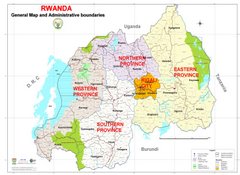
Nagui présente "Tout le monde veut prendre sa place" et "Taratata".
Alexandrie-Paris alller simple vers les médiasNagui FAM, dit Nagui, est né le 14 novembre 1961 à Alexandrie (Egypte), d'un père égyptien et d'une mère française, tous les deux professeurs de français. Il passe ses premières années à Alexandrie, 3 ans à Aix en Provence, 2 ans au Canada et aux USA et enfin vient s'installer à Cannes, région dans laquelle il fera ses débuts. En juin 1979; son baccalauréat C en poche, il entame une fac de Sciences à Nice (Deug B) puis 2 ans de prépa HEC à Paris.
L'intégralité de sa vie professionnelle concerne les médias.Il est présentateur de radio, puis, parallèlement présentateur et producteur de télévision.
En janvier 1993, il crée sa société AIR PRODUCTIONS, afin de produire l'émission TARATATA pour France 2. Il est Gérant de cette société et actionnaire unique depuis le début.
En 1994, il crée la filiale IMAGE ON AIR, d'abord avec une société partenaire (IMAGE FACTORY). En 1997 AIR PRODUCTIONS achète à cette société les parts qu'elle détenait dans IMAGE ON AIR et Nagui FAM en devient le Président.
Des radios "libres" à RTL: parcours sans faute.Il fait ses débuts à "Radio Vintimille Internationale" pendant l'été 1979.
- 1979/1980 : "Radio Continentale" (FM pirate dans le Sud Est)
- Juin 80 à Juin 81 : "Radio Midi" (FM pirate dans le Sud Est)
- Juin 81 à Août 82 : "Radio galère" qu'il monte avec ses amis à Cannes
- Octobre 82 à Nov 85 : "Radio France Côte d'Azur"
- Nov 85 à Mars 86 : "Radio France Provence"
- Mai 86 à Mai 87 : "95.2 FM"
- Juin 87 : "Chic FM"
- Depuis le 15 février 1988 : Entrée à RTL
- Février 88 à juin 88 : "RTL an 2000" de 20 h à 21h
- Septembre 88 à juin 89 : "Satell Hits" de 20 h à 21h30
- Septembre 89 à Juin 90 : "Challeng Hits" de 19h à 20h30
"Satell hits" de 20h30 à 21h pendant la semaine
"Studio 22" le samedi de 18h30 à 20h
- Septembre 90 à Août 91 : "Génération laser" de 19h à 21h
"Studio 22" le samedi de 18h30 à 20h
- Septembre 91 à Juillet 93 : "Départ immédiat" le vendredi de 8h30 à 10h
"Studio 22" le samedi de18h30 à20h
- Septembre 93 à Juin 94 : "Le Cékoidon" de10h à 11h
- Depuis septembre 94 : "Malice aux pays des merveilles" de 8h30 à10h du lundi au jeudi
- Sur Europe 2 depuis Septembre 2006
De la musique et des jeux: Nagui sur France2.- Juillet 92 à septembre 95 : "Que le meilleur gagne" - France 2 animée par Nagui (Bi-quotidienne - 12h30 et 19h20)
- Janvier 93 à juin 96 : "Taratata" - France 2 animée et produite par Nagui (Hebdomadaire - 2éme partie de soirée)
- Octobre 93 à décembre 93 : "Ovations" - France 2 animée et produite par Nagui (Mensuelle - 1ère partie de soirée)
- Février 94 : "Les victoires de la musique" & " les 7 d'or" - France 2
Co-animateur (Emissions exceptionnelles - 1ère partie de soirée)
- Septembre 94 à juin 96 : "N'oubliez pas votre brosse à dents" - France 2 animée et produite par Nagui (Mensuelle - 1ère partie de soirée)
- Février 95 : "Les victoires de la musique" - France 2
Co-animateur (Emission exceptionnelle - 1ère partie de soirée)
- Juin 95 à Février 96 : "MirOir mon beau mirOir" - France 2 animée et produite par Nagui (Mensuelle - 1ère partie de soirée)
- Septembre 96 à juin 97 : "Taratata" - France 2 animée par Alexandra Kazan et produite par Nagui (Hebdomadaire - 2ème partie de soirée)
- Avril 98 : "Sidaction 98, Fête l'amour" - France 2 produite par Nagui
(Spéciale - 22h30)
- Septembre 98 : "Hymne à Piaf" - France 2 produite par Nagui (Spéciale - 20h50)
- Septembre 98 : "Ophélie de folie" - France 2 produite par Nagui (Spéciale - 22h30)
- Novembre 98 : "Y'a quoi à la télé?" - France 2 animée par Thierry Beccaro et produite par Nagui (Spéciale - 20h50)
- 20 et 27 décembre 98 : "Le monde est merveilleux" - France 2 animée par Antoine et produite par Nagui (Dimanche - 2ème partie de soirée)
- Janvier 99 : "Starmania, Miss Saigon, Notre-Dame de Paris... et les autres" - France 2 Documentaire produit par Nagui
- Avril 99 : "Taratata Symphonique n°1" - France 2 animée et produite par Nagui (Spéciale - 20h50)
- Novembre 99 : "Taratata Symphonique n°2" - France 2 animée et produite par Nagui (Spéciale - 20h50)
- Janvier 2001 à Avril 2001 : "Tutti Frutti" - France 2 animée et produite par Nagui
- De Déc 01 à Déc 02 : "Le Numéro Gagnant" - France 2 animée et produite par Nagui
- De Juillet à Août 2002 : "Slap" - France 2 produite par Nagui
- 27 décembre 2003 : "Prix Constantin" - France 2 animé par Nagui
- 17 janvier 2004 : "le coffre" - France2 animé par Nagui.
- 25 décembre 2004 : "Encore + libre" - France 2
- 28 décembre 2004 : "Ça va être votre fête" - France 2 - animé par Nagui
- 2005 : "Taratata" - France 3, France 4 - animé par Nagui
- été 2005 : "Intervilles" - France 2
- 2006 : "Tout le monde veut prendre sa place" et "Y'en aura pour tout le monde" - France 2
- Palmarès des chansons : 28/04/2006
- fin 2006 : Retour de Taratata sur France 2



